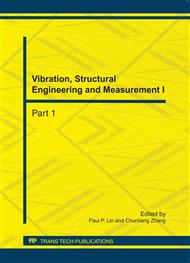p.2043
p.2047
p.2051
p.2055
p.2059
p.2063
p.2071
p.2076
p.2080
Signal Analysis of Impact Test Due to Tidal Bore Using Empirical Mode Decomposition (EMD)
Abstract:
Tidal bore is a series of waves propagating upstream as the tidal flow turns to rising. The Qiantang Bore has aroused the curiosity of scientists and tourists all over the world in the past centuries as a strong turbulent bore. We consider here tidal bore impact measurements, recorded in the Qiantang River using pressure transducers. Based on the empirical mode decomposition (EMD) algorithm, a signal processing method for impact test due to the Qiantang Bore is proposed. As a self-adaptive approach, EMD method can be used to decompose the local characteristics of the no-stationary and nonlinear signals into several fluctuations and trend items with different time scales step by step. The separation of the quasi-static and dynamic pressures is conducted by using the empirical mode decomposition method.
Info:
Periodical:
Pages:
2059-2062
Citation:
Online since:
September 2011
Authors:
Price:
Сopyright:
© 2012 Trans Tech Publications Ltd. All Rights Reserved
Share:
Citation:


